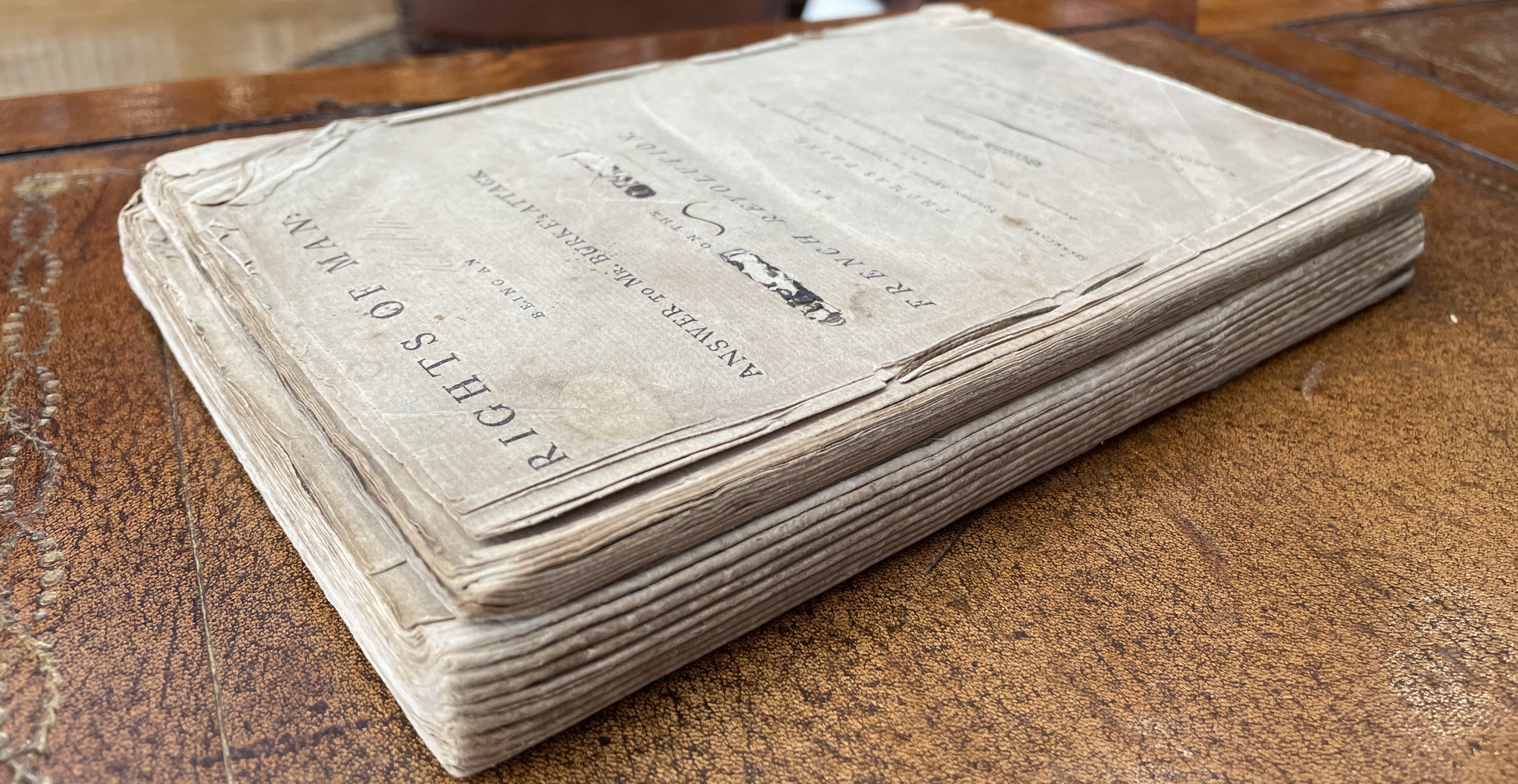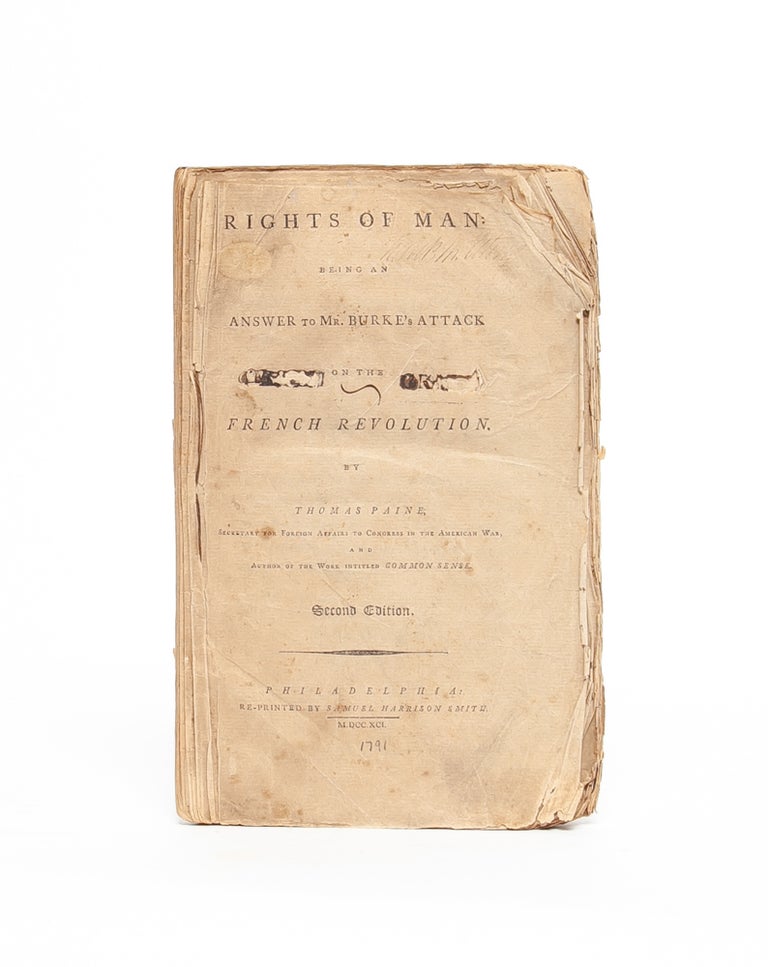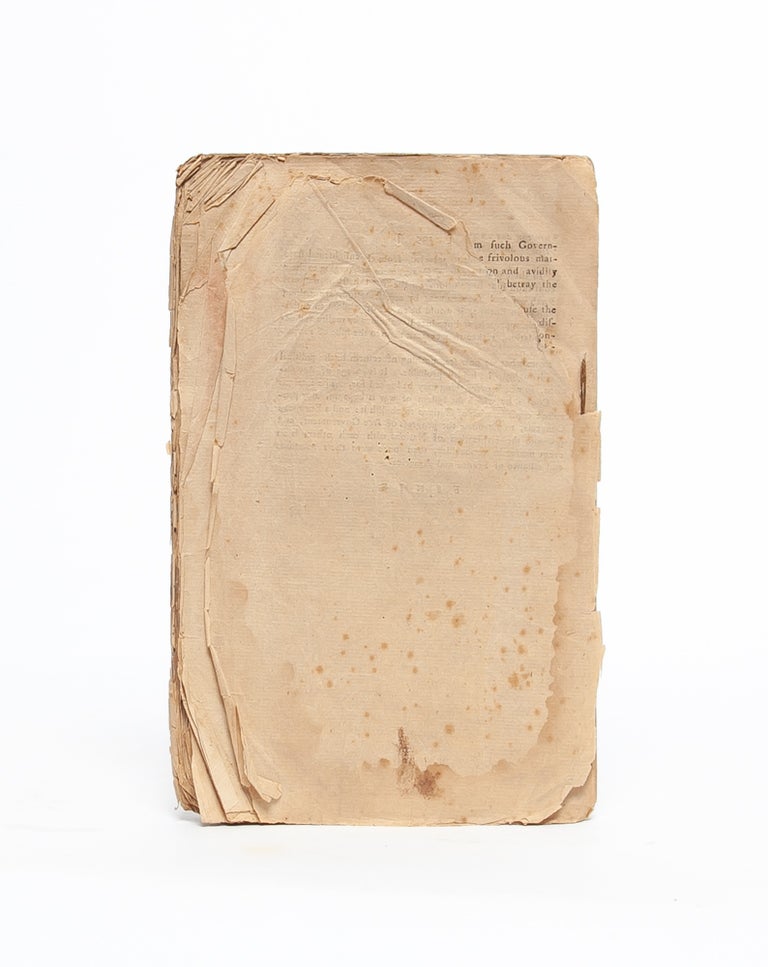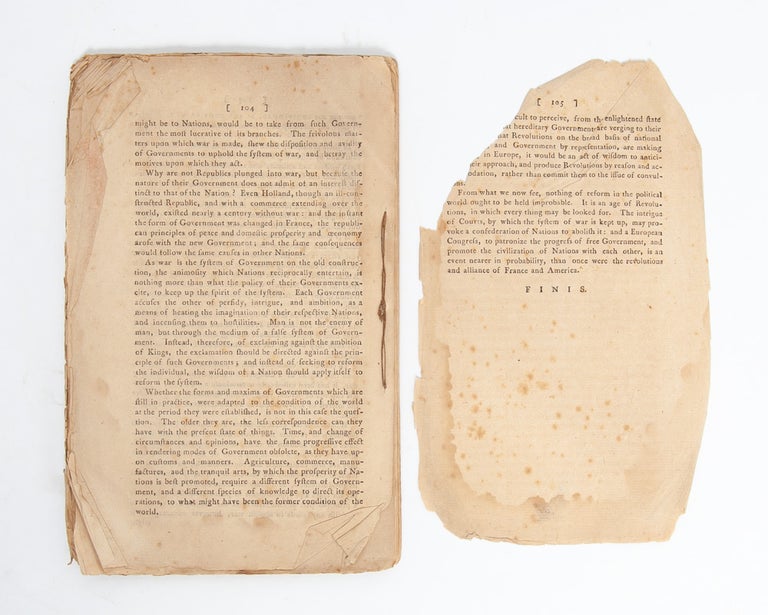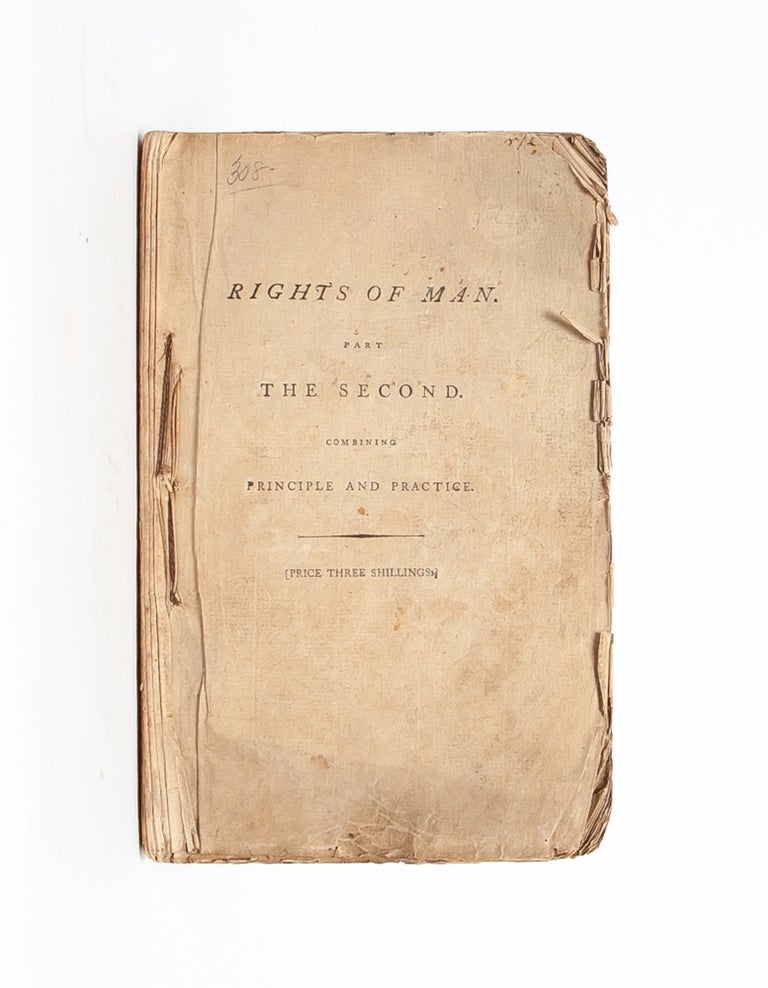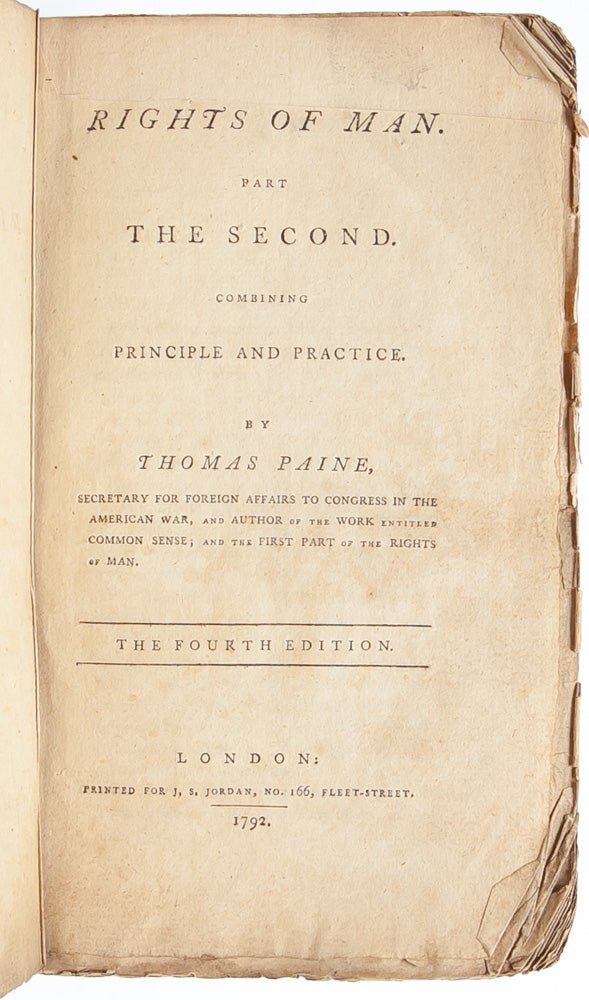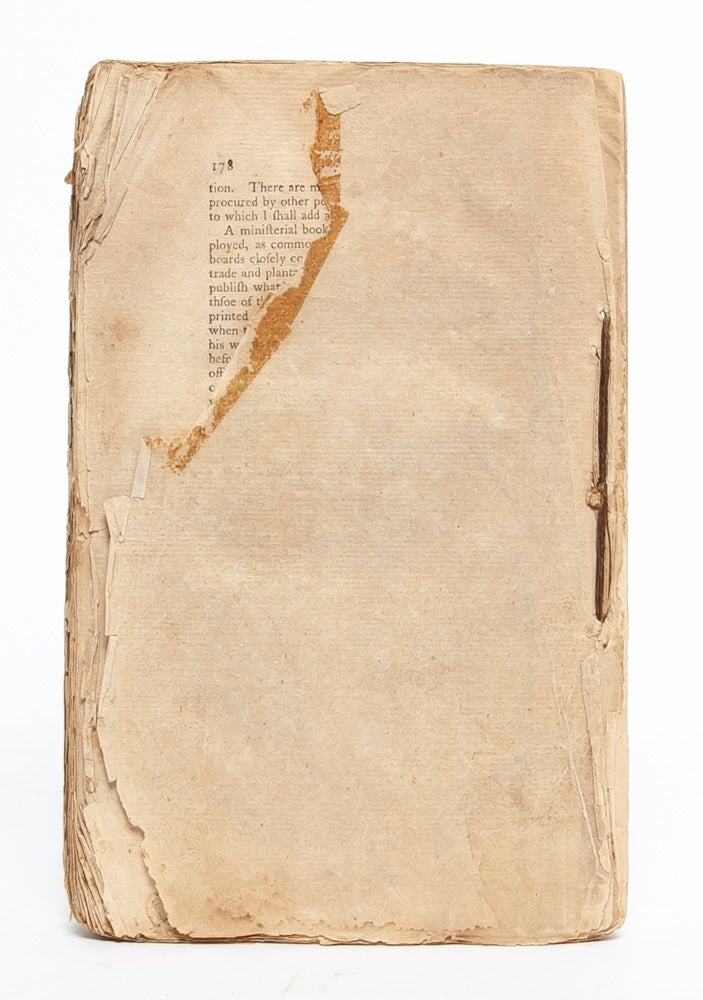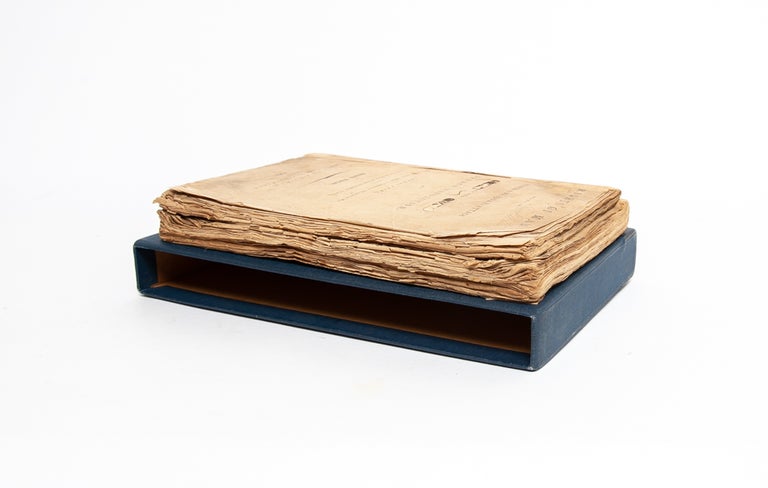Rights of Man. Being an Answer to Mr. Burke's Attack on the French Revolution
Philadelphia: Re-Printed by Samuel Harrison Smith, 1791.
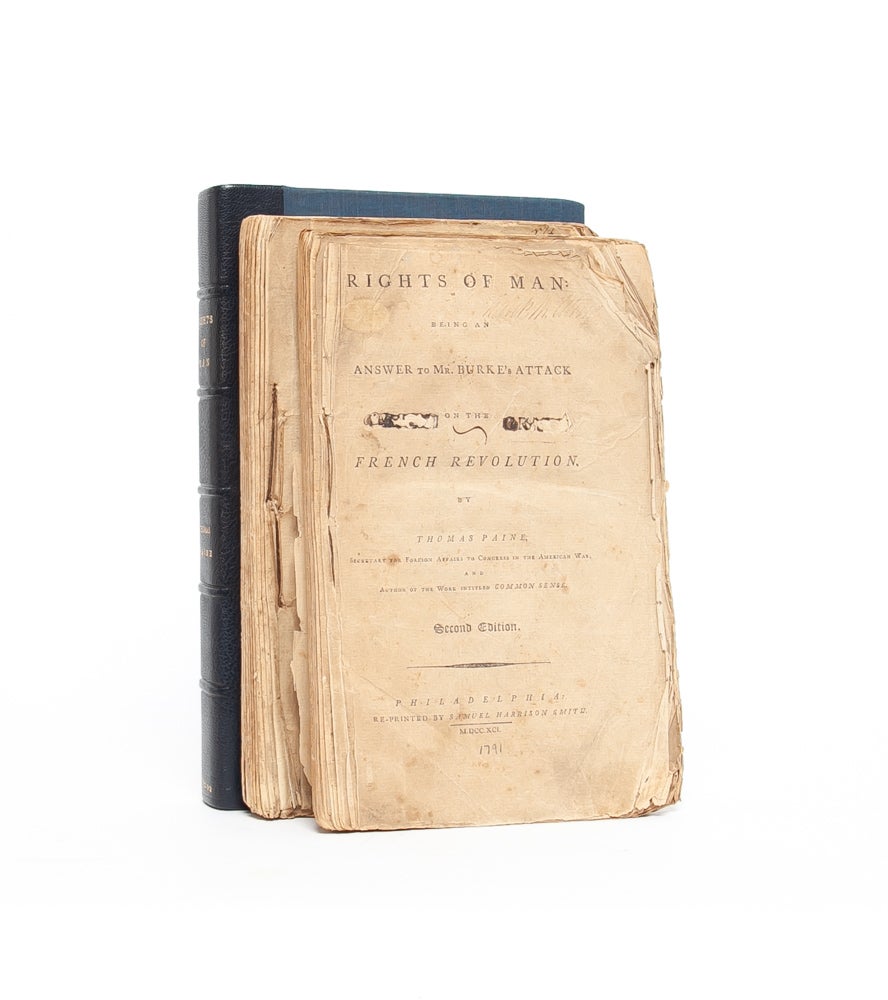

Rights of Man. Being an Answer to Mr. Burke's Attack on the French Revolution
Philadelphia: Re-Printed by Samuel Harrison Smith, 1791. First American edition. An exceptional survivor in wrappers as issued. With both issue points present: stating "Second Edition" on the title page and containing the infamous "Jefferson extract." Measuring 220 x 140mm and collating complete: [1]-105, [1, blank]. With general toning and light soiling throughout. Contemporary ownership signature to title page, with loss to paper (but no text) where a prior owner's name has been defaced. Edges and upper right corner chipping and bumped; rear leaf present but detached, with loss including text from a portion of the upper left corner. The last true first London edition to sell at auction (one of just about 100 copies that were sold before the run was recalled hours after release) which was a 1st edition of part one and a 2nd edition of part two, sold for $250,000. Here we have the first American edition of part one. ESTC records copies at only 14 institutions, all within the U.S. We could find only one other copy in the modern auction record.
[Together with]. Paine, Thomas. Rights of Man. Part the Second. London: J. S. Jordan, 1792. Fourth Edition. Collating complete; xv, [1], 178. Bound, like its companion, in original printed wrappers and measuring 220 x 140mm. Paper at header of title page removed, likely to prevent ownership identification. With general toning and light soiling throughout; edges somewhat chipped. Loss of paper to rear wrap. Together a pair of exceptional survivors. Housed in a custom quarter morocco slipcase with chemise.
The circumstances surrounding the first American edition of Rights of Man (denoted by its Second Edition statement on the title page and the presence of the unlicensed extract of Thomas Jefferson’s private letter about it) were marked by exceptional speed. “The first printing of Rights of Man appeared in London on 22 February 1791, a date which prompted Paine to tip the dedication to the President into the first bound copies. That issue was recalled by the publisher within a few hours, but not until more than one hundred copies had been sold” (National Archives). Stateside, a copy reached the hands of John Beckley, who shared it with Thomas Jefferson and James Madison. As a result of these swift exchanges, Beckley’s instructions for Jefferson to send the pamphlet to merchant and revolutionary Jonathan Bayard Smith resulted in Smith’s son, nineteen year old printer Samuel Harrison Smith, producing the first American edition of Rights of Man. “The work was speedily issued” and released on “Tuesday, the 3rd of May…Exactly one week had elapsed since Jefferson transmitted Beckley’s copy to the father of the publisher” (National Archives). Marked “Second Edition” on its title page, Harrison’s publication identified “the Secretary of State as the one who had ‘transmitted a copy of this Pamphlet for republication’ and in omitting the explanation that this had been done at Beckley’s desire, Smith permitted his readers the inference that it was Jefferson who had sponsored the publication” (National Archives). Controversy ensued. Among the results were Smith's reprinting of an altered text, marked as the "Second Philadelphia edition, from fourth London edition, corrected and enlarged" and containing one less page: removing the notorious Jefferson extract.
“The Rights of Man was one of the most widely read books of its time. In it, Paine argues that human rights depend on nature, and that charters, with an implication that they are granted and can therefore be withdrawn, can have no basis in law. Hereditary government, dependent on Edmund Burke’s idea of the ‘hereditary wisdom’ of the ruling classes, is clearly divisive rather than benevolent and is, therefore wrong; Paine’s assertion is that a nation should be able to choose its own government, and that the role of government is to protect the family and their inherent rights” (British Library). The arrival of Paine’s work in the new American republic – and its being read and discussed among Founding Fathers – led to Paine’s political thought taking a crucial role in shaping the U.S. founding documents and institutions.
ESTC W36410. Evans 23664. Printing and the Mind of Man 241. Very Good (Item #4720)
